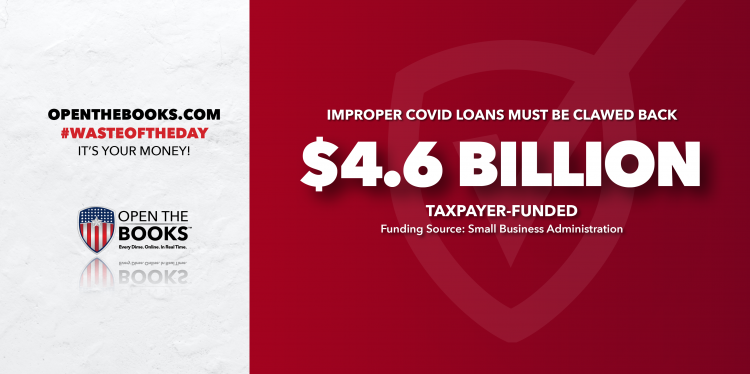Key facts: The Paycheck Protection Program loaned $813.7 billion to businesses and individuals struggling to pay their employees from March 2020 to May 2021. As of May 2024, the Small Business Administration had forgiven 10.5 million of the loans, worth over $750 billion.
Of the forgiven loans, 37,938 still have an open “hold code 70,” meaning there was “potential fraud, misuse of program funds, or evidence that a borrower knowingly violated SBA policy,” the inspector general wrote.

The SBA has a four-step process to decide whether to claw back funds from forgiven loans with a hold code, but only two steps of the process have been completed for the 37,938 loans. The agency still has not conducted a “higher authority review” of whether loan forgiveness should be denied, and the loans have still not been reviewed by the Office of Capital Access, the audit said.
The SBA has not provided a date when the process will be completed and told the inspector general the delay was caused by “competing priorities.”
There is no time limit on the SBA’s review of forgiven loans funding, but the agency’s ability to recoup the money will “generally decrease” as time passes, the audit states. The agency only holds onto its records of forgiven loans for 10 years.
The inspector general noted that “swift action by management to identify and review potentially ineligible loans and to establish comprehensive policies and procedures to formalize how it will recover improper payments could increase the probability of recovering improper payments.”
Search all federal, state and local government salaries and vendor spending with the AI search bot, Benjamin, at OpenTheBooks.com.
Background: The loans that still have a hold code are just a small portion of those that need to be reviewed. OpenTheBooks previously named the SBA one of the “biggest offenders” of improper payments this century, doling out $29 billion of unknown and improper payments through the Paycheck Protection Program between 2004 and 2022.
Meanwhile, 43 employees at the SBA earned salaries of more than $200,000 last year, up to $252,262.
Summary: The taxpayers who fund the SBA’s potentially fraudulent loans likely don’t agree that the agency should ignore the $4.6 billion in loans, while focusing on “competing priorities.”
By Jeremy Portnoy
The #WasteOfTheDay is brought to you by the forensic auditors at OpenTheBooks.com
